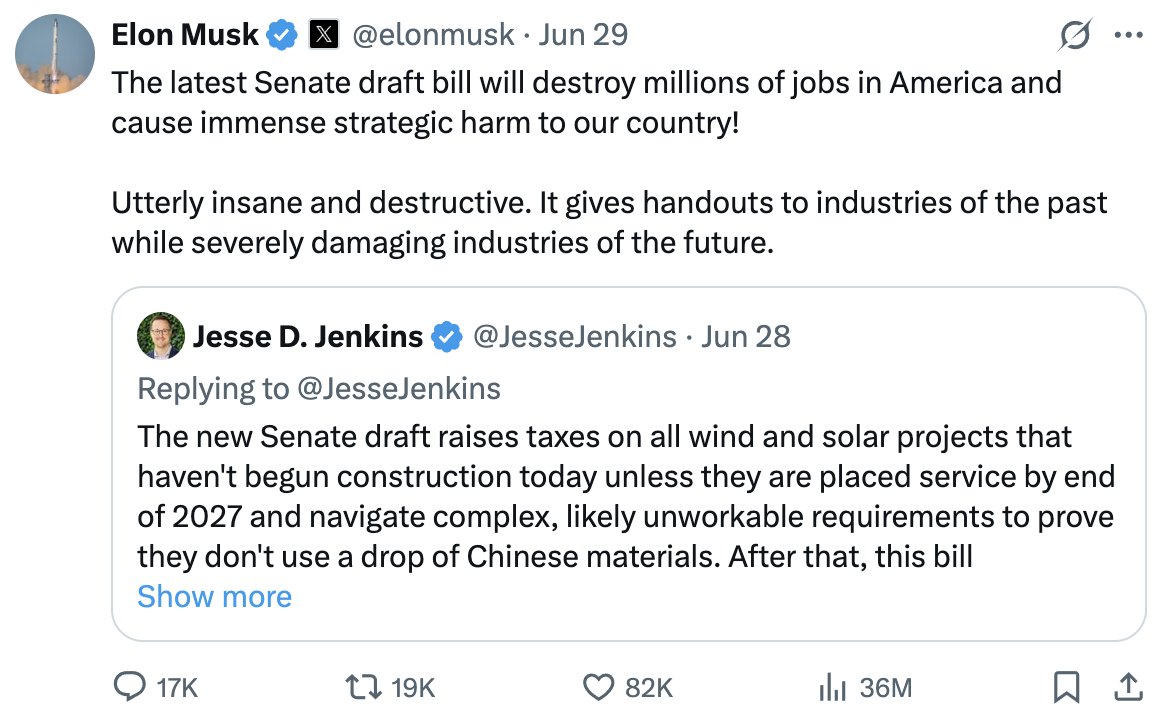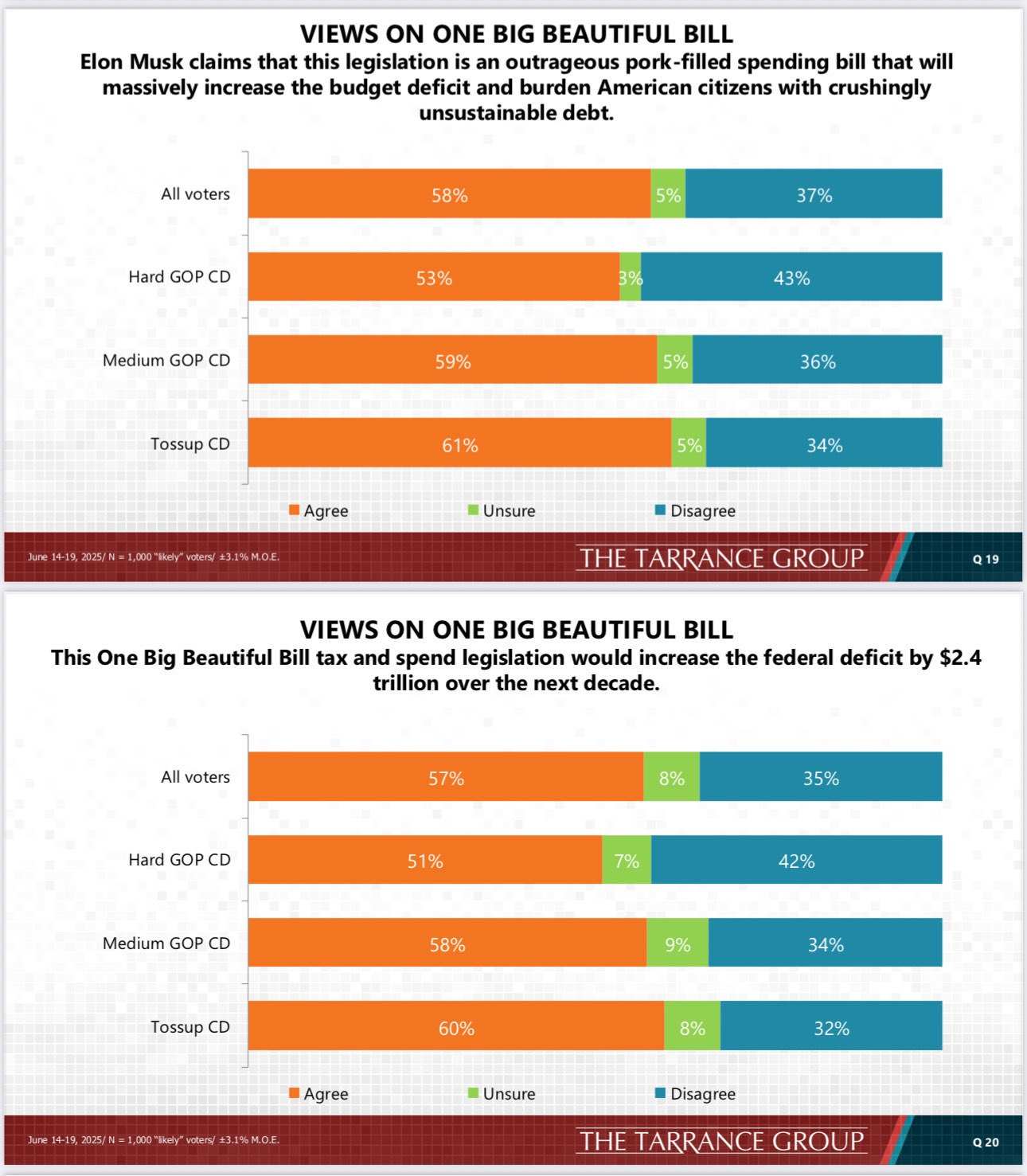Musk Fires Another Shot at One Big Beautiful Act Bill: It Could Ruin America’s Future

TradingKey – On June 20, Tesla CEO Elon Musk once again publicly criticized the U.S. Senate’s draft tax and spending bill, calling it “highly destructive” and warning that it could have long-term negative consequences for the American economy and future industries.

[Source: X]
Musk argued that the bill — which former President Donald Trump has dubbed the “Big Beautiful” Act — will eliminate millions of jobs and cause major strategic damage to the U.S. He specifically pointed out that the large subsidies given to traditional industries are essentially “firing on future-oriented sectors.”
Citing a poll from the Tarrance Group , Musk noted that the bill has already caused significant internal division within the Republican Party and could hurt GOP candidates in upcoming elections. He quoted the survey directly:“For the Republican Party, this is almost political suicide.”

[Source: X]
The revised version of the bill dramatically reduces tax credits related to wind energy, solar power, and electric vehicles — a move that has sparked fierce opposition from environmental groups and clean energy companies.
Adrian Deveny, founder of policy advisory firm Climate Vision , warned that the bill could raise the cost of wind and solar projects by 10%–20% , calling it a "blow to the renewable energy industry."
This isn’t the first time Musk has spoken out against the bill. His criticism has strained his previously strong relationship with Trump, shifting him from a vocal supporter to an open critic. The tension between the two has escalated into public disputes and even potential political maneuvering.
On Saturday, the Senate held its first procedural vote on the bill. With Trump personally lobbying dissenting Republicans, the bill barely passed with a final count of 51 to 49 votes , officially moving into the debate phase.
However, Democrats have begun using procedural tactics — including extended floor readings — to slow down the legislative process, creating a major bottleneck.
At this stage, whether the bill will ultimately pass remains uncertain. If stalled or rejected, it could disrupt Trump’s broader political and economic agenda, especially around trade and energy policy.
The direction of U.S. energy policy may also influence investment strategies among top institutional players. Investors should pay close attention to how star investors adjust their portfolios as the debate unfolds.
[Click here to preview star investor holdings and sentiment]







